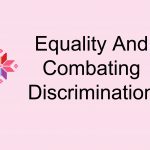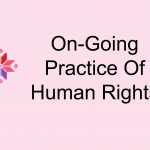 In the fallowing period we will publish articles from our Annual Report on the State of Human Rights of LGBTI People in Bosnia and Herzegovina
In the fallowing period we will publish articles from our Annual Report on the State of Human Rights of LGBTI People in Bosnia and Herzegovina
Legal Framework
LGBTI persons and same-sex couples are a reality of the Bosnian and Herzegovinian society. Unfortunately, the existing legal framework (family laws of RS, FBiH and BD) does not engage in regulating these relationships, which means that it does not secure the minimum rights necessary to ensure the respect and protection for same-sex unions.
Individuals in same-sex partnerships that are rooted in an emotionally secure family life cannot claim their constitutionally guaranteed rights to freedom and security, private and family life and home, to starting a family, protection of property, or freedom of movement and residence, solely on the basis of their sexual orientation, and not because those rights are any less important or necessary to them. BiH is discriminating against its citizens by failing to ensure their access to these rights and freedoms and is breaching the guarantee of equality found in Article 4(2) of the Constitution of BiH and in Article 1(2), which guarantees that the State and both entities will ensure the highest possible level of protection of the internationally recognized human rights and freedoms.
As a Member State of the Council of Europe aspiring to accede to the EU, BiH will have to amend its legal framework to regulate the rights of same-sex couples. This obligation arises from BiH membership in the Council of Europe and from the decisions of the European Court for Human Rights. Several recommendations by the Council of Europe bind the member states to respect private and family life of each and every individual and to advocate the elimination of discrimination on the basis of sexual orientation and gender identity. Further, although it does not support the legalization of same-sex marriage, it implies the right to same- sex partnerships that would be legally equal to heterosexual civil partnerships at least.
The European Court for Human Rights has ruled on multiple occasions, and particularly in the recent judgments in the cases Valianatos v. Greece and Oliari v. Italy, that same-sex unions are considered family life and that, with the aim of rectifying the violations of the right to family life guaranteed by the European Convention on Human Rights and Fundamental Freedoms, the state must regulate same-sex union and ensure at least the same scope of rights and duties as granted to civil partnerships.
Having in mind that the Constitution of BiH stipulates direct application of the European Convention on Human Rights and Fundamental Freedoms and that it shall prevail over any other law – this obligation refers also to its entities. Therefore, it is clear that the institutions of Bosnia and Herzegovina and its entities must regulate same-sex unions both to improve its legislation and to achieve equality and a high standard of protection of human rights of its citizens.
The 2016 Bosnia and Herzegovina Report of the European Commission recognizes that same-sex couples are continuously institutionally discriminated against because there is no legal framework that provides them any social and economic rights.
In the mentioned ECRI 2016 report, it is recommended to the authorities in BiH to ensure a legal framework which provides same-sex couples the possibility to have their relationship be recognized and protected in the resolution of practical problems they face in their lives.
Documented Cases
In 2016, 8 couples contacted Sarajevo Open Centre looking for information on registering their partnerships in the countries of the region and in the European Union. In the beginning of 2017, two couples contacted Sarajevo Open Centre in search for such information.
Although it is believed that the majority of citizens in BiH are against legal regulation of same-sex unions, recent research conducted by the National Democratic Institute showed that 30% of the general population of BiH is in favour of same-sex couples having all economic, social and other rights that heterosexual couples gain through marriage or civil partnership, with the exception of adoption.
Guidelines for Further Action
- Pass and implement laws in all three administrative units (Republika Srpska, the Federation of BiH and Brčko District) that would legally recognize same-sex partnerships and define the rights and obligations of cohabitating couples in same-sex unions (with particular focus on social and economic rights).
 Pink report 2017: Equality And Combating Discrimination
Pink report 2017: Equality And Combating Discrimination Pink report 2017: GOOD PRACTICES
Pink report 2017: GOOD PRACTICES Pink report 2017: Freedom Of Assembly And Association
Pink report 2017: Freedom Of Assembly And Association Pink report 2017: Hate Crime And Incitement To Hatred
Pink report 2017: Hate Crime And Incitement To Hatred Pink report 2017: On-Going Practice Of Human Rights Violations
Pink report 2017: On-Going Practice Of Human Rights Violations Pink report 2017: Priority Measures To Be Undertaken
Pink report 2017: Priority Measures To Be Undertaken